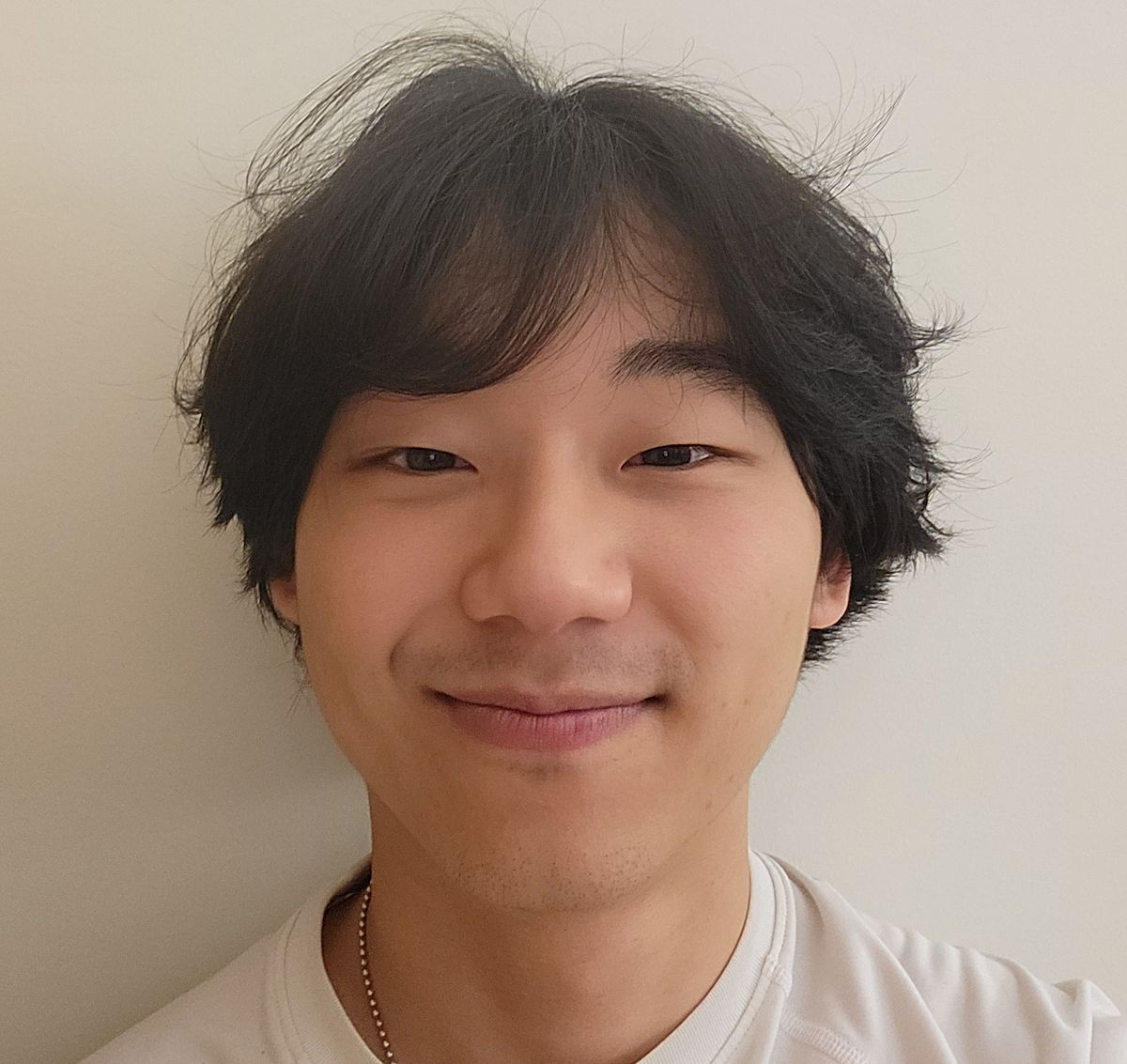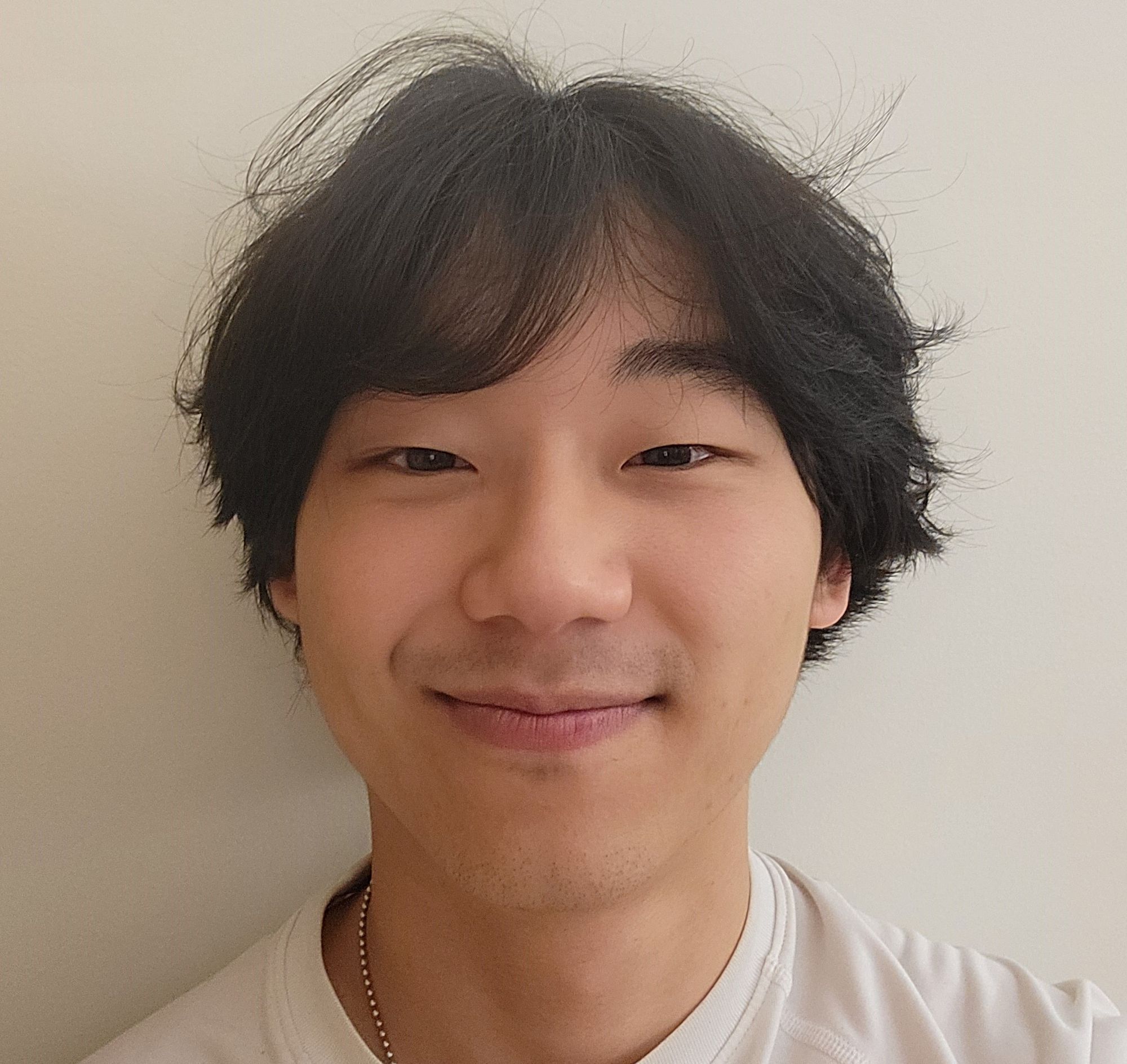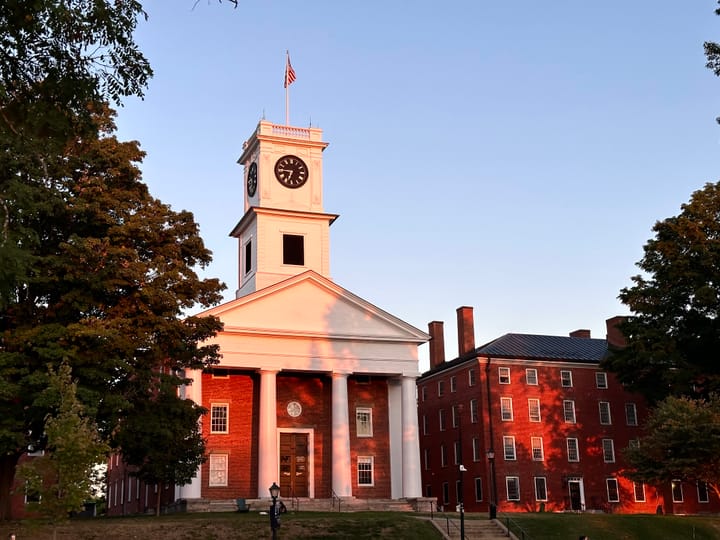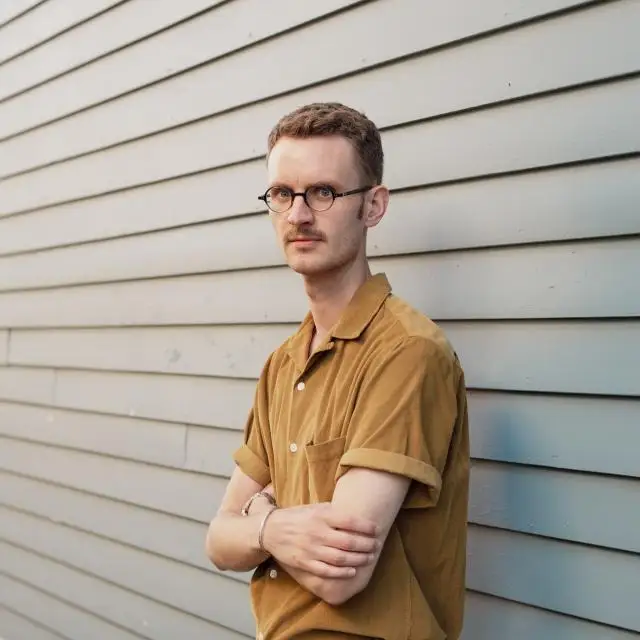Sebastian Son: Storytelling Through Song
Whether he’s performing onstage, writing behind the scenes, or simply being a steadfast friend, Sebastian Son has made innumerable contributions to the Amherst arts community.


Sebastian Son ’22 looked right at home on the couches of Arms Music Center, where I interviewed him immediately after his MUSI-123 class, “Sacred Sound” (he’s still fulfilling music major requirements). It felt a little like talking to a celebrity, since I’ve watched Son shine onstage as part of Mr. Gad’s House of Improv and at virtually every a cappella showcase. I wasn’t sure what to expect from our interview. Would he constantly crack jokes? Break into song? Although neither of these things ended up happening — in fact, Son’s in-person demeanor is much quieter than his onstage one — he possessed an unmistakable gravitas. There was a thoughtfulness to his answers that I’ve rarely felt during other interviews. In talking to Son and the people around him, I’ve learned that he applies this thoughtfulness to every aspect of his life — and does so with unfailing kindness.
As I pressed record on my phone, I noticed the penny board tucked under Son’s arm. Seriously, what can’t this guy do? The answer, it seems, is not much. During his time at Amherst, Son has completed an English and music double major; been a part of the Asian American Writers’ Group; performed in Gad’s, the DQ, Green Room, and AC Musical; interned at the Emily Dickinson museum; and served as a student member of the Presidential Task Force on Diversity and Inclusion. “I’m the type of person who’s always working on something,” he admitted with a laugh. “So my idea of free time is not always free.”
Son also took a gap year in order to work on music and to write his thesis, a concert musical entitled “Reasons to Leave.” His gap year played an instrumental role in his decision to pursue the arts as a career. It seems that during those 12 months, he came to the same conclusion I did over the course of our interview: At his core, Son is a storyteller.
“If I were to map my life out, and do all the things I’m interested in, I’d want to write, I’d want to sing my own songs and I’d want to write songs for other people. I’d want to perform on stage,” he said. “Eventually, I want to do it all.” I don’t doubt he will.
Becoming a Band Kid
Church was an important part of Son’s childhood in Fort Lee, New Jersey, but not for the reason you might think. Son’s Catholic mother would take their family to church, where singing mass hymns gave Son his first taste of musical performance.
“There would always be this little group of us in the pews, children just singing at the top of their lungs,” said Son.
Eventually, when Son was around 10, the church organist took notice. He recruited Son and his siblings, and formed a children’s choir. Son cited this as a crucial moment for his future interests: “The repeated act of singing and being exposed to music that way, I think that’s what drew me [to music].” Son sang in that choir until he left for college.
Son continued to pursue the arts at Fort Lee High School, where he dabbled in orchestra, choir, the thespian society, and was the drum major in marching band. Although he did a little of everything, “identity-wise, I was definitely a band kid,” he said.
Even so, Son rarely practiced music at home, in part because he didn’t have space to, and “the walls were very thin.” As one of four siblings, Son didn’t have his own room until he got to college.
Finding Community at Amherst
“Amherst was a very, very fortunate accident,” said Son. “I admittedly did not do a lot of research before applying to colleges … My Common App essay was written the day before it was due.”
Son’s aunt, who graduated from Smith, was the one who encouraged him to apply to Amherst. He put about as much effort into the application as he did his Common App essay. As Son described it, “I looked on the website and copy-and-pasted enough information to make my supplement sound OK.”
The copy-and-paste job must’ve been impressive, because Son received his acceptance and financial aid letter a few months later.
“I’m like, ‘Oh, wow, Mom, look at this.’ … She looks at the [tuition fee] and she’s like, ‘You have to go here. You have no other choice.’ I’m like, ‘Are you sure? I’m still waiting on other decisions.’ And she’s like, ‘No, you’re going here.’”
And so Son went. But his transition to college was less than smooth.
“My first semester, I didn’t really do much. I didn’t know what clubs were out there, so I had a lot of free time, and I didn’t really know what to do with it. I didn’t really have a lot of friends either,” he said. Son spent his time wandering, and often found comfort in the solace of a practice room.
After that first semester of not knowing anyone, Son decided to return to his roots and seek out opportunities to perform. “I would read all the posters in Val and if I saw something like music, or singing, or musicals, I would just write in my calendar and then make an effort to go out,” he said. That year, Son joined the DQ, and has been a staple member of campus acapella ever since.
“I think I met most of my community through arts and that sort of thing,” Son told me. What he failed to mention is how much he helps foster that arts community.
“He ran my acapella group’s indefinite rehearsal last semester when we were going through a difficult time, and he stayed with us until we ended rehearsal at 4:30 a.m.,” said Kelly Huang ’22, a friend of Son’s since they met three years ago in the class “Form in Tonal Music.” “We’re not even in the same acapella group, and he did this out of the goodness of his heart. He is also a great teacher, and he is so patient. He is one of the busiest people I know, yet he still manages to do all of this and more.”
Son also found community in other areas. Last school year, he joined the newly founded Asian American Writers’ Group.
“I thought I wanted to be a writer when I was younger, and it’s still something that means a lot to me,” he said. “It’s really a space where I feel comfortable sharing, writing, and getting feedback, and it really helps me grow as a writer.”
The group mostly discusses writing pertaining to Asian American identity — which for Son was heavily influenced by the environment in which he grew up.
“Growing up in Fort Lee … was important for my identity. A lot of Asian students grow up in predominantly white areas … but luckily for me, Fort Lee is a very Asian community, it’s about 40 percent Asian … So growing up, I felt very comfortable in my identity. I didn’t feel like an outsider, and I think that was big. That’s huge,” he said.
At Amherst, Son’s perception of his identity shifted slightly. “Saying things like, ‘As an Asian American, I believe,’ — that was not really a concept to me [before]. Coming into Amherst, my race was something unspoken, that you just knew. … It wasn’t something you intellectualized or spoke at length about; it was just a part of you,” he said. “Any discussion about race would sort of make me uncomfortable before I got to Amherst. And what’s really changed is that I think I’ve embraced that part of me a lot more, and I have new vocabulary to talk about some of the things I’ve experienced. It’s really helped me open up.”
Son frequently encountered discussion about race in his introductory sociology class, which “really revamped the way I saw the world,” he said — so much so that he almost declared a sociology major. Since he was going into junior year and it seemed a bit late, though, he stuck with English. When he told me this, I was confused — isn’t he also a music major?
It turns out that Son added a music major solely because he had to find a home for his thesis, a concert musical. He first proposed it to the English department, arguing that lyrics were a form of poetry, but was shot down. He then tried to declare an interdisciplinary major, but this, too, failed. Finally, he turned to the music department, which accepted his thesis with open arms.

Reasons to Leave (for a Gap Year)
Son took a gap year during the 2020-2021 school year for two main reasons: One, he didn’t see the point in college without extracurricular involvement. And two, he wanted to write a musical.
Son knew he wouldn’t be able to accomplish his vision while taking classes and participating fully in on-campus life. His thesis, “Reasons to Leave,” is a musical but “not a fully fleshed-out one.” It’s a concert musical featuring four singers and a band of guitar, bass, piano, strings, violin, cello, and drums.
The musical is about a rocket ship that’s going to leave Earth and never return. People come from all walks of life to get on the ship, each with their own reason. Hence, “Reasons to Leave.”
Son’s thesis advisor, Andrew W. Mellon Professor of Music Eric Sawyer, commended Son for a “very self-driven thesis.” Sawyer has known Son for three or four years, and described him as being exacting, communicative, and self-motivated.
Son definitely knew which stories he wanted to tell. He spoke to me about the most autobiographical song in his musical, “Translation.” The song is about a college student whose grandmother passes away, and at her funeral he realizes that since he can’t speak her native tongue — he was unable to ever truly connect with her.
“I knew from the start that that’s not an experience everyone’s going to relate to. … But I was sort of very set,” said Son. “I know this is an experience that people have, I’m not the only one. And even if it’s a minority of people that will sort of get what’s going on here, I wanted this to be for them.”
Sawyer also spoke to Son’s storytelling ability.
“I think that Sebastian is ambitious, musically,” said Sawyer. “He’s also very honest about wanting to make his music express the things that he feels.”
During the pandemic, Son was also simultaneously working on other music.
“It ended up being a very fruitful spot for my creativity, because I was unhappy, and I didn’t know how to voice that or articulate it,” he said. “So I ended up trying, in different ways. … A lot of it is questions like ‘What is ahead?’”
A large part of that unhappiness was from the third and final reason Son took a gap year. Before his gap year, Son was planning on going into finance. But his resume was not competitive in that area, so he worked a nine-to-five banking job, where he “wore a button-down shirt and dress shoes every day, had a little lunch bag, and sat in a cubicle.”
“Everyone that worked there was 45 and older. They had families. And there was a sort of sense that they were going to hold this job until they retired. And me being there at 22, I just could see this pathway ahead of me. All the steps were laid out, and it ended here. And I didn’t know that I wanted my life to end in this bank,” he said.
Son turned to music instead: “At my desk, I was just writing lyrics in between typing on the computer.” But he still wasn’t sure about his path forward. In the end, it was his colleagues in finance who inspired him to turn away.
As part of his networking, Son cold-called a lot of people who had “made it” in finance.
“What they seemed to be urging was to find something that was fulfilling. And I especially asked the ones with children what their children were studying in college. And it usually wasn’t finance. It was usually like sociology, or philosophy, you know, something more liberal arts. That really struck me — like, if I become this sort of person working this respectable career making a lot of money, I’m just going to want my children to end up pursuing something that fulfills them. So why shouldn’t I just start now and break that cycle and make my life into that?”
Son cites his gap year as “maybe the most impactful thing I did in my time here. And I would also say, to talk to a lot of people because someone else’s life won’t be a perfect representation of your life, … but the more stories you hear about other people, I think the more patterns you start to see, and the more you understand where your life fits in with that pattern. If I didn’t talk to all those people over the gap year, I don’t think I would have come to this firm conviction of what I should be doing with my life.”
Writing His Own Path
Son looks ahead to a lifetime of creating art. “If what I put out there can make someone’s day better, I think that’s all that matters,” he said.
This summer, he’ll be teaching music composition at a music camp, and after that, he might be headed to Los Angeles. Son received a grant from the Office of Fellowships to fund a year of artistic training, and he plans to use the money to attend the Musician’s Institute in Los Angeles. There, he’ll study songwriting.
“I think Sebastian has the passion and the patience to really make a go of writing theater music, and I’m excited about his future,” said Sawyer.
In the distant future, Son thinks going on tour “would be really cool.” He also wouldn’t mind having his own Wikipedia page.
His advice to current college students?
“It’s good to have a plan, but write it in pencil.”





Comments ()